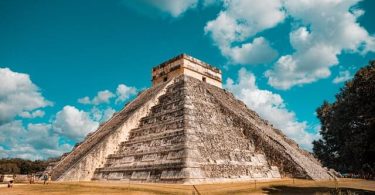Table of Contents
If you are planning to research your Mexican ancestry, you’ll first need to break down the research process from the beginning to the end. Note that conducting genealogy research is not for the faint-hearted as it requires endurance, dedication, consistency, perseverance, and professionalism. The urge to identify your ancestors must have been influenced by confusion and blanks in your life that deprives your life of direction. Although advanced technology has helped find crucial data online, it requires expert intervention to trace your family history to a specific locality and ethnic group in Mexico. Besides the probability that your ancestors migrated to other countries in North America, such as the United States, you will need to search documents in these places to trace your ancestral origin, relatives, and families. You will probably need services from professional genealogists who understand the process better. Still, the research process follows a common guide that is broken down below.
11 Mexico Genealogy Resources For Your Mexican Ancestry
Tips on your Mexican Family History
The necessary information you will need when searching for your Mexican ancestry includes your ancestors’ names and the specific hometown they lived in. Having additional data about your ancestors or family members could contribute to your research and lead to a quick analysis of available records about the area. The additional information you may need includes birth records, marriage records, occupation, and religion. It could be easier for you to trace your family lines if your ancestors had unique surnames as you would use it as the lead, especially if you don’t know the specific state they lived in. Common surnames would lead to confusion as you would find millions of potential matches and be tasked with determining which one is your ancestor. You can start small by examining the documents you have at home, such as photographs and official documents. You can also reach out to your close relatives and elders in the United States on any information they may have regarding your family history.
The Record Collections Technique
common sources for tracing your Mexican ancestry are the Catholic Church records and the civil registration records. However, you will need to have the historical events related to your search and the specific dates to achieve your research’s desired results. The records in the Mexican civil registration date as early as 1860. So, if the information you are searching for dates before 1860, it is advisable to check the Catholic Church records established in the 16th century in the country. However, it is worth noting that each diocese has varying records of different dates depending on when the diocese was formed. Besides, some of the 1930 census records about Mexico City were destroyed over the centuries, making details spotty. Advanced technology has also enabled the digitization of most of these records on various sites, making it easy to acquire them online without visiting the parish or the registry office. All you need is to access one of the websites with these details and join the dots.
Obtaining Church Records
The Catholic Church has been dominant in Mexico, and most Mexicans were baptized, confirmed, and married through the church. Therefore, the church possesses crucial records of these events through the diocese and the local parishes across different regions. Notably, the church recorded these events included details such as names and dates that you can use to trace your family tree and ancestry. Catholic records could also place information about numerous generations in a single file where you can find information about a person’s parents and grandparents. The parishes also sent their record books to the archives to ensure a backup if the originals were destroyed.
Consulting a Professional Genealogist
At some point in your process to trace your family tree, you may discover the logistics and technicality involved. Whether you are just starting or have already identified some leads, you might need help interpreting the language, data or accessing records from a family history library. Seeking expert help is the best solution as professional genealogists understand what is necessary and how to cut through files. Besides, the intervention will save you the stress and time that you can spend on other productive activities that you know best. The researchers also offer swift response regarding the marriage, death, or census information about your ancestor.
Genealogy Resources
The type of resources that you will need help finding to trace your ancestors include court records that show details about your ancestor’s probate records, death records and divorces, if any. Mexico directories could also help trace your ancestor’s city and property owners across all the cities and states in Mexico. Among others, these records have names of all the parties and could offer in-depth insight into your ancestry and family in Mexico.
Key Take Away
Genealogy research involves numerous processes that seek to join the dots of your family history. This process requires expert interventions to consult a genealogist to help in the collection, translation or interpretation of ancient information that you may encounter. Understanding the entire process is crucial to avoid disappointments and manage your expectations as you encounter discoveries.



